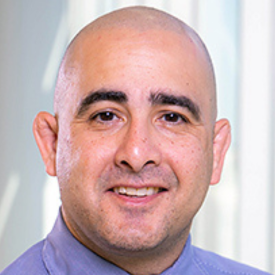What was the genesis of the Public Health Ethics & Law Program?
I noticed a couple of years ago that we had an unusual concentration of public health ethics expertise in the Center for Bioethics and Humanities and in the Colorado School of Public Health. We have multiple people with public health training and expertise who, even if they wouldn't say, "I'm a public health ethicist," there's no question that the work they do has strong implications for ethics in public health. That's unusual. There aren't that many of us in the world to begin with and to have a concentration like that is unique. And then what I realized was nobody had any idea that this actually exists.
So, I began thinking, “Let’s make a program.” Let's at least hang out a placard and start to get organized and really capture all of the things we're already doing that are really focusing on public health law and ethics and systematize it and get a mission and a vision. And then you can really start to grow and build and show the world that the University of Colorado Anschutz Medical Campus is actually a national and potentially even an international center for work on public health ethics and law.
Why is this program needed now?
There's a once-in-a-century pandemic going on. It’s pretty clear to most people who are living and breathing through a pandemic that there are some ethical and legal issues we have to deal with as a society in order to try to keep ourselves and the world healthy and protect the most vulnerable.
We just think there's a moment here now where it's much more obvious and palpable and in people's minds. The message is: "Here, look, there needs to be some people, resources and organizations really devoted to thinking through some of the ethical implications in public health and helping communities think through these things too; and also thinking about the complex trade-offs we're being asked to make."
How would you and your colleagues define health justice?
There are three parts to it. One, it's a focus on social determinants of health, not just access to healthcare. So the social and economic conditions in which people live, work and play. Because the evidence is very compelling that that's the overwhelming determinant of health in any human society.
The second part of health justice is an attention and inquiry on oppression and structural violence –things like racism and ableism. I have a background in disability work, so I spent a lot of time thinking about ableism. Racism, ableism, gender and sex-based inequities and oppressions as well. So inquiry that really centers work on oppression and structural violence as opposed to making it an afterthought or a secondary consideration, which it has been for a long time.
And then a third factor is focusing on collective action that's grounded in community engagement. So really trying to expand the focus beyond the usual academic order, so to speak, and thinking about policies and practices and programs in which we can serve that are really community engaged and community centered.
Are there other examples of how laws affect public health?
One of the basic ideas of public health law as a field is the idea that law itself is a major social determinant of health. And what does that mean? The laws we have and the laws we don't have – because the vacuums matter too – have an enormous impact on who gets sick to begin with. They determine, literally, who lives and who dies sometimes, and who lives with what degrees of preventable illness.
Everyone says, "Yeah, we get it." Laws and policies are very powerful determinants of health outcomes in populations. So if that's the case, then that means that law is a powerful tool and it can be used unfortunately to diminish health or vulnerable populations, which we've seen a lot of.
But that also suggests reasons for hope and optimism. We can use laws to advance health justice in the ways I just said. And what's really fortunate is that we can use those laws in a variety of different sectors. So to your point, we can have social policies, like paid sick leave or unemployment, for example, which have proved in a pandemic to be really important in slowing transmission and in protecting the most vulnerable population.
If you think about it in the negative way, all of the anti-LGBTQIA+ laws being passed on the state level are going to have a dramatic effect on U.S. population health. There was also a study that just came out this week showing that maternal mortality and infant mortality in Texas has risen substantially after the Supreme Court’s Dobbs ruling.
When will the program start seeing students?
It's really starting as an organization. We bring in speakers, I give talks, and Matt Wynia, MD, director of the Center for Bioethics and Humanities, does the same. So it's about organizing and capturing a lot of this at the beginning and then using that organization and driving growth. So your question is when will we start seeing students? We're already seeing students. When will there be formal and independent PHEAL education initiatives? That's part of our one- to three-year plans. It's just hanging out a shingle and trying to build the car while it's already been in motion for a while.




.png)

